Environmental and Economic Justice (103 found)
‘With Only Our Voices, What Can We Do?’: Land Confiscation and Local Response in Southeast Myanmar
 ORCHID HOTEL, YANGON – Three years after the 2012 preliminary ceasefire negotiations between the Myanmar government and the Karen National Union (KNU), reported instances of land confiscation continue to increase in southeast Myanmar. In the 2015 report, ‘With only our voices, what can we do?’, KHRG highlights four main land use types which lead to land confiscation, including infrastructure projects, natural resource extraction, commercial agriculture projects, and military activities. Based on testimony from local villagers, the Myanmar government; domestic corporate actors; and Tatmadaw and Karen ethnic armed groups (EAGs) are all identified as being complicit in the confiscation of land from local communities in southeast Myanmar. However, local villagers report using a variety of strategies to prevent and mitigate the impacts of land confiscation, such as reaching out to civil society organisations (CSOs) and the media, negotiating with actors involved in projects, and lobbying both the Myanmar government and Karen EAGs […]
ORCHID HOTEL, YANGON – Three years after the 2012 preliminary ceasefire negotiations between the Myanmar government and the Karen National Union (KNU), reported instances of land confiscation continue to increase in southeast Myanmar. In the 2015 report, ‘With only our voices, what can we do?’, KHRG highlights four main land use types which lead to land confiscation, including infrastructure projects, natural resource extraction, commercial agriculture projects, and military activities. Based on testimony from local villagers, the Myanmar government; domestic corporate actors; and Tatmadaw and Karen ethnic armed groups (EAGs) are all identified as being complicit in the confiscation of land from local communities in southeast Myanmar. However, local villagers report using a variety of strategies to prevent and mitigate the impacts of land confiscation, such as reaching out to civil society organisations (CSOs) and the media, negotiating with actors involved in projects, and lobbying both the Myanmar government and Karen EAGs […]
Open Letter to Special Rapporteur from Korean Transnational Corporations Watch
Korean Transnational Corporations Watch (hereafter KTNC Watch) is a network of human rights/labor/environment/public law organizations in Korea which has long been active in responding human rights issues of Korean-owned or -invested companies overseas […]
• • •Afraid to Go Home: Recent Violent Conflict and Human Rights Abuses in Karen State
The following report was prepared by Karen Rivers Watch (KRW), a coalition of six Karen organizations focused on the environment, women, youth, human rights and development issues. More information about KRW is provided on page 14.
This report is based on field interviews with local villagers and leaders of Karen armed groups, as well as media coverage of the recent conflict. It describes events that led to recent armed conflict between the Democratic Karen Benevolent Army (DKBA) and the combined force of the Burmese Army (BA) and Border Guard Force (BGF) in Karen State. Next, the report gives a detailed account of clashes that occurred along the Salween River in Hpa-an and Hpapun (Mutraw) districts. […]
• • •Voices from the Ground: Concerns over the Dawei Special Economic Zone and Related Projects
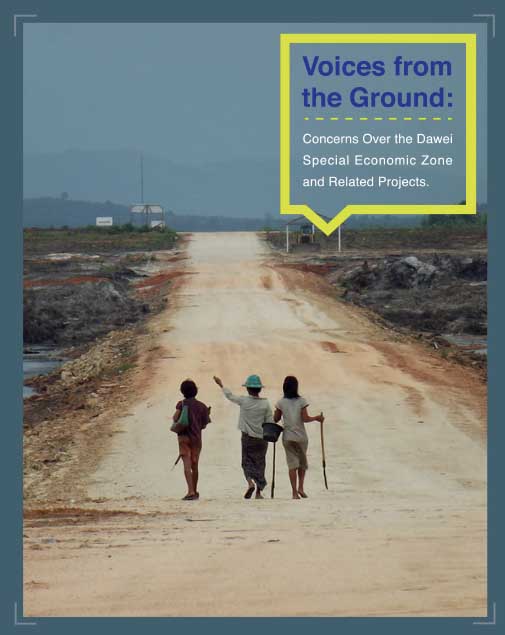 The report “Voices from the Ground: Concerns over the Dawei Special Economic Zone and Related Projects” calls on the National Human Rights Commissions of Thailand and Myanmar to collaborate and carry out a full investigation into all complaints of human rights abuses, relating to land confiscations and forced evictions as a consequence of the Dawei SEZ project activities or operations conducted by companies domiciled in Thailand or Myanmar.
The report “Voices from the Ground: Concerns over the Dawei Special Economic Zone and Related Projects” calls on the National Human Rights Commissions of Thailand and Myanmar to collaborate and carry out a full investigation into all complaints of human rights abuses, relating to land confiscations and forced evictions as a consequence of the Dawei SEZ project activities or operations conducted by companies domiciled in Thailand or Myanmar.
Critique of Japan International Cooperation Agency’s Blueprint for Development in Southeastern Burma/Myanmar
The Japan International Cooperation Agency (JICA) has recently issued a blueprint that proposes industrial development in Southeast Burma/Myanmar, purportedly to aid in the return and settlement of refugees and Internally Displaced Persons (IDPs) in Karen and Mon States. However, the Karen Peace Support Network (KPSN), a network of nearly 30 ethnic Karen organizations, cautions JICA that its blueprint for infrastructure development such as roads and industrial estates in the war-torn southeast is premature and flawed, potentially exacerbating conflict in the region.
The KPSN (formerly KCBPSN) is the largest network of Karen civil society organizations in Burma/Myanmar. These organizations have been providing support for vulnerable people in this conflict-torn region for decades, striving to empower local communities, build transparent and accountable institutions, and help create a sustainable peace in Burma/Myanmar. KPSN and its member organizations are important stakeholders which must be included in any development planning process in the Karen areas of the southeast […]
• • •Myanmar’s Rosewood Crisis
Extremely rapid growth in Chinese imports of ‘redwood’, ‘rosewoods’ or ‘Hongmu’ timbers from Myanmar in the past two years is directly driving increased illegal and unsustainable logging, posing a real threat to governance, the rule of law and the viability Myanmar’s dwindling forests.
EIA research shows that, based on current trends, the two most targeted Hongmu species in Myanmar – tamalan and padauk – could be logged to commercial extinction in as little as three years.
With financial rewards for illegal loggers and timber smugglers dwarfing traditional incomes, and evidence of corruption facilitating illegal business, Myanmar’s domestic controls will be unable to effectively stem illegal trade.
Myanmar urgently needs to engender legal reciprocity from strategic timber trade partners, particularly China, to ensure Myanmar’s forestry and trade laws are respected along its land border […]
• • •Thai Oversea Investment on Coal Mining in Myanmar: The Private Business Violating Human Rights and Causing Environmental Impact on Ethnic Communities along Tenasserim Border
Tanintharyi Hills or Tanintharyi Range is the geographical name of a roughly 1,700 km long mountain chain, part of the Indo-‐Malayan mountain system in Southeast Asia. The Tanintharyi Range covered with lush green forest and is a natural border line between Thailand and Myanmar. Across the hills in Myanmar side is Tanintharryi Region. The capital of this administrative region is Dawei which consists of diverse of ethnicity such as Dawei or Tavoy, Karen or Khayin and Mon. The local languages spoken by majority of the population are Tavoyan and Karen. In the past, the areain which bordering near Kanchanaburi province of Thailand was a former war zone between Karen ethnic group and Burmese junta government. It was intense conflict war zone during 1996 -‐ 1997 until cease fire agreement between the Burmese junta and the Karen National Union (KNU) was signed in 2012 […]
• •Data Corruption: Exposing the True Scale of Logging in Myanmar
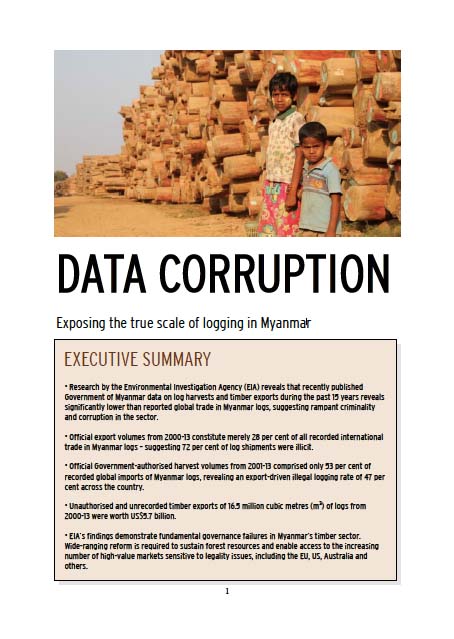 The Environmental Investigation Agency (EIA) released a new briefing Data Corruption: Exposing the true scale of logging in Myanmar, scrutinizing official figures on log harvests and timber exports over the past 15 years.
The Environmental Investigation Agency (EIA) released a new briefing Data Corruption: Exposing the true scale of logging in Myanmar, scrutinizing official figures on log harvests and timber exports over the past 15 years.
Myanmar’s Six Billion Dollar Timber Corruption Black Hole Revealed by Official Data
LONDON: New analysis of the Myanmar Government’s forestry and trade data points to a multi-billion dollar illegal logging and exports black hole – indicating widespread criminality and official corruption[…]
• • •Good Governance and the Extractive Industry in Burma
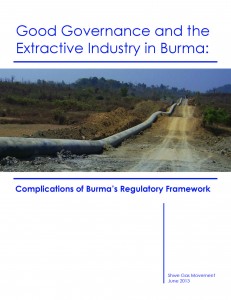 As the country begins to open up for the first time in more than 60 years, foreign investors and energy consumers worldwide are beginning to look progressively towards Burma and its rich natural resources. Aimed at policy makers, investors, corporations, various governments, intergovernmental groups and other stakeholders, this briefer seeks to highlight the necessity of a sound domestic legal framework in Burma through a critical analysis of the current limitations and implications thereof […]
As the country begins to open up for the first time in more than 60 years, foreign investors and energy consumers worldwide are beginning to look progressively towards Burma and its rich natural resources. Aimed at policy makers, investors, corporations, various governments, intergovernmental groups and other stakeholders, this briefer seeks to highlight the necessity of a sound domestic legal framework in Burma through a critical analysis of the current limitations and implications thereof […]

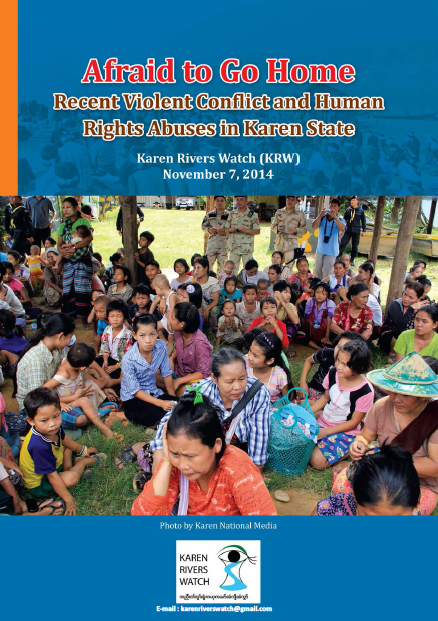
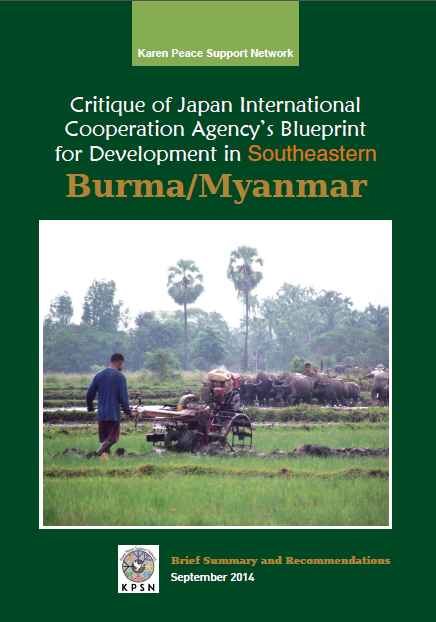
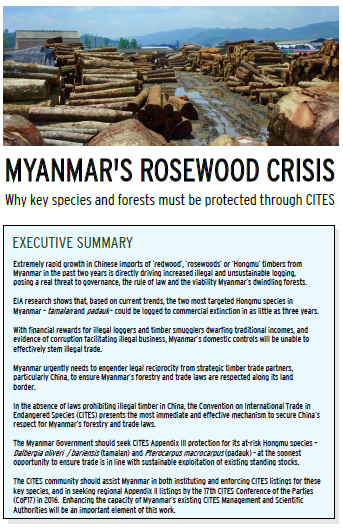
 All posts
All posts